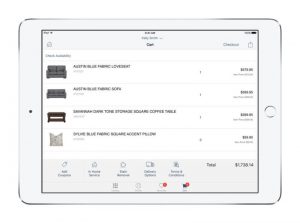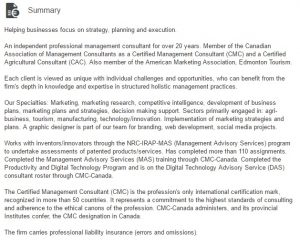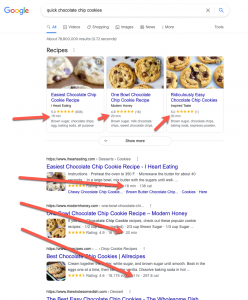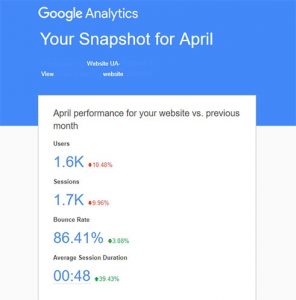 Many employers have made social network checks a standard part of the talent acquisition process. A 2015 Harris poll revealed that fifty-two percent of employers use social networking sites to screen job candidates during the hiring process. These social network checks have become almost as common as reference checks and criminal background checks.
Many employers have made social network checks a standard part of the talent acquisition process. A 2015 Harris poll revealed that fifty-two percent of employers use social networking sites to screen job candidates during the hiring process. These social network checks have become almost as common as reference checks and criminal background checks.
Ever wondered why you didn’t get that job even though your background check was clean, you had three interviews that went extremely well and your gut told you that job was yours? Ask yourself this: Did the hiring manager connect with you on LinkedIn or Facebook and suddenly everything went silent? Perhaps your social network check didn’t go so well.
I surveyed recruiters and human resources professionals who recruit senior level talent and asked them what they look for when doing social network checks. These professionals have offered valuable information that can help any job seeker land that dream job.
Matt Lanier, Eliassen Group Corporate Recruiter
I conduct social media checks on a candidate every single time when deciding to bring someone in for an interview. If the first thing I see is a picture of them doing a keg stand or lighting it up at a hemp fest, it’s definitely going to be the difference maker between me bringing them in or not.
And, it goes both ways. If their timeline or photos are all positive activities, volunteer work or family outings, you could be getting a leg-up on the competition who has chosen to go the opposite route with what they display.
It’s the recruiting world we live in now; if the candidates are willing to publicly post something on social media, a potential employer has every right to factor it in when considering you for a job.
Tracey Russell, Recruiter, Naviga Recruiting & Executive Search
One of the things I look for on LinkedIn is to check if there are any disparities between the candidate’s submitted resume (or the one posted on a job board), and their LinkedIn profile. Not only should the candidate’s resume be up to date, it should also be incongruence with the resume they have posted on the job board. It looks suspicious to me if dates and job titles vary a lot from LinkedIn to your resume, and will often pass on your resume if I see this behavior.
I also check social media to see whether the candidate is posting something inappropriate about their current employer or past employer. That is an automatic red flag. Also, boasting about current or previous criminal history is a big turn off.
Mainly, social media profiles are where I look to see if someone has integrity. If there are inappropriate comments or behavior, it gives me insight into the job seeker’s true character.
Bill Fish, Founder and President of ReputationManagement.com
The days of fretting for hours on whether to use a semi colon or colon on your resume are gone. Now, hiring managers are looking for your total picture – and that includes your online profiles. The first thing that I tend to look for is hate speech. Coming across comments online that attack a subset of society is an immediate deal breaker for me. Drug references are also frowned upon. If you feel comfortable enough to speak about drug usage online, that is a serious red flag. Blatant misspellings may seem minor, but if the candidate can’t put in the effort to spell words correctly on social media, what kind of effort will they put in on the job? All of that said, social media shouldn’t be the main determining factor on whether or not to hire someone, but it could quickly eliminate someone from consideration.
Jennifer Folsom, Senior Manager of Human Capital, Summit Consulting
LinkedIn Profiles: How often has this candidate endorsed colleagues and junior staff? Is he or she engaged in thoughtful discussions regarding key content areas? Is he or she responding to Questions and Answers and sharing content relevant to the industry? At the senior level, we are looking for subject matter expertise in one or two key areas.
Twitter: Has this senior-level candidate embraced Twitter or is she afraid of technology? Is he tweeting thoughtful content relevant to our industry? Is she being re-tweeted? We’re looking for industry names, influencers that can leave a big impact.
Blogs or other media mentions: Again, at the most senior-levels we are looking for thought leaders with media mentions or individuals who are drafting blogs (great writing assessment!) in areas of expertise.
Lynda Spiegel, HR professional and founder of Rising Star Resumes
Checking a job candidate’s online profile is important at any level, but it’s critical for senior executives. Individuals may guard their professional profiles zealously, but neglect to realize that their personal lives show up online as well, and that can often reveal traits that employers want to avoid. The main thing I would look for when vetting a candidate is a sense of appropriateness. Does this person come across as someone I’d want to avoid socially? Then I probably don’t want him or her in a position of responsibility at my company. Being tagged in a photo holding a beer at a family picnic is appropriate; dancing shirtless isn’t. And one’s associations help form an impression as well – positive or negative. Giving back to the community through volunteer work, or being on the local school or library board tells me more than just following a sports team does.
Laurence J. Stybel, Ed.D., President, Stybel Peabody Associates, Inc.
I look at the LinkedIn page. Does the person have one or two references from colleagues or subordinates showing that this person is a team player? If the only references are from bosses focusing on how conscientious she is, I wonder if she is a team player.
If there are no references, I wonder if she might be a jerk.
The LinkedIn photo gives me a clue about judgement. Remember, this is your professional image to the world. One candidate had a photo of himself taken with his back to the camera, standing with a golf club and viewing a beautiful golf course. Lovely photo, but why is that appropriate for a professional image?
Very few of the respondents did social network checks to look for content specifically related to the job an applicant has applied for. Jennifer Folsom, Senior Manager of Human Capital at Summit Consulting, was the only respondent who specifically stated she checked a candidate’s social networks for content that demonstrated thought-leadership. This is a clear indication that your personal life, and how much of it you choose to share on your social networks, will have an effect on your career – whether you like it or not.
Even at the senior level, hiring managers and recruiters are doing social network checks and finding things like: keg stands, shirtless beer chugging pics, bad talk about former employers, hate speech, references to criminal activity and inconsistent dates and titles on resumes. And those senior level professionals don’t get a pass for bad behavior. If upper management doesn’t get a pass, entry level folks don’t stand a chance if recruiters find anything they deem inappropriate on their social network pages.
Have you, or someone you know, lost a job opportunity after a social network check? Please share in the comments!
(171)
Report Post








